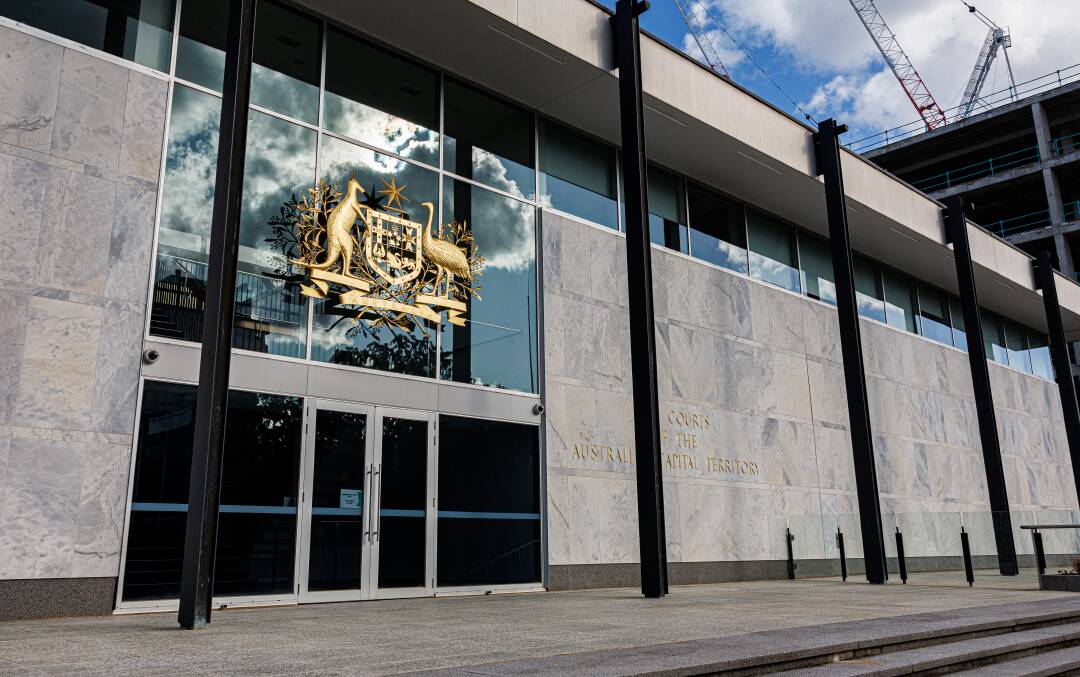A sexual assault complainant's mental health issues, police investigations, and undisclosed documents may impact the prosecution case against the accused, a defence lawyer has argued.
An ACT Supreme Court trial starting on Monday has heard that a man allegedly committed historical indecent acts on his adopted sister in 1971-75.
She then had major depressive disorder and received psychiatric treatment before she died by suicide earlier this year.
The man, who is not named for legal reasons, is also accused of committing similar acts on his niece in 1979-83.
He pleaded not guilty to two counts of assaulting a child and about the same time committed an indecent act on the child.
He is facing a judge alone trial, a rarity for sexual assault cases in the past decade in the territory as such matters are ordinarily tried by juries in the jurisdiction.
The prosecution case is that the accused, in his mid 70s, touched the complainants' vaginas and genital areas a number of times when they stayed at his Canberra premises during school holidays.
Prior to the first complainant's husband giving evidence for the prosecution on Tuesday, the legal parties argued, before Justice Chrissa Loukas-Karlsson, about the witness being cross examined in relation to his wife's mental health.
Chief Crown prosecutor Anthony Williamson SC said evidence about her mental health - specifically depression and anxiety - was irrelevant and would not cause her to be "untruthful, to be dishonest, or to make false allegations".
The court heard the complainant initially went to NSW Police in October 2018 before her case was transferred to the ACT.
The investigation was at one point suspended because the complainant decided not to continue as her mental health deteriorated.
Travis Jackson, for the accused, said the interview with NSW Police then affected "the narrative of the ACT evidence-in-chief interview".
He said in the latter interview, she referred to her police statement and had other aids, which meant the process departed from the usual "free narrative" of giving such evidence in person in court.
Mr Jackson said some documents had not been disclosed, which with her mental health, "may be substantial" in relation to her reliability.
"Your honour should also take into account the period of time that elapsed since the acts or events to which the evidence relates were done or occurred," he said.
Justice Loukas-Karlsson ruled in favour of Mr Jackson, saying "it's clear that it [mental health evidence] does pass the test of relevance".
In his evidence to the court, the husband of the first complainant gave an account of her mental health issues and said the case was not suspended, but it was rather a "redirection".
He said that in the two years up to her death, the allegations were "a topic of daily discussion" between the pair.
He said she told him there was no intercourse and mentioned unwanted touching and "a degree of oral sex from him".
During cross examination, however, he admitted he did not mention "oral sex" in his statement to police.
The second complainant's evidence-in-chief interview with police was also played to the court on Tuesday.
"He'd put his hands under the blankets ... to have a fiddle," she alleged.
"It never went any further than hands down the pants."
Sexual assault charges are ordinarily excluded from judge alone trials in the ACT under legislation introduced in 2011.
Prior to the trial starting, the Supreme Court ruled in favour of the accused's election for a judge alone trial based on the argument that the charges were not subjected to the 2011 legislation.
Defence lawyers said the accused was charged with pre-2011 offences that have since been repealed and re-numbered and amended to be "acts of indecency with young people".
While the latter charge is one of the excluded offences from judge alone trials, the lawyers said had the accused been charged at any time from 1993 when judge alone trials in certain criminal proceedings were introduced, he would have had a right to elect one.
The lawyers said while it was not clear, there as "every reason to accept" that the legislation would have only prospective operation "in the absence of express provision to the contrary".
"There is simply no basis to infer that the legislature 'overlooked' anything," they said.
Among the prosecution's arguments was that had the accused been charged before 1993 when no judge alone trials were conducted, he would have had to face a jury trial in any case.
Further, that if the current offence was an iteration of the repealed offence, then the latter was now an excluded offence.
- Support is available for those who may be distressed. Phone Lifeline 13 11 14; Kids Helpline 1800 551 800; beyondblue 1300 224 636; 1800-RESPECT 1800 737 732.








